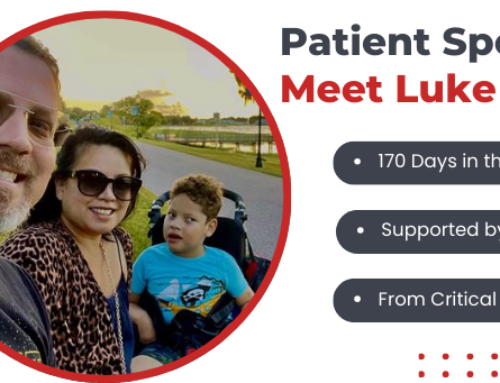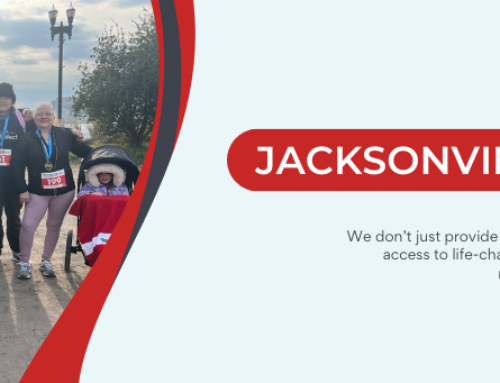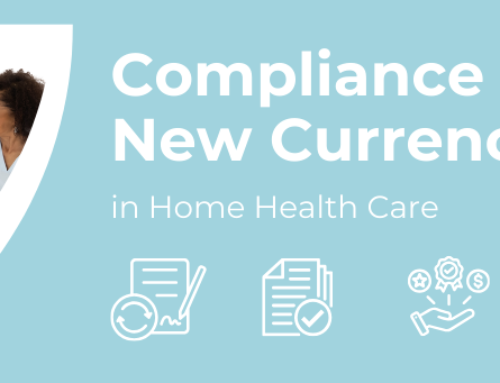Caregiver strain refers to the physical, emotional, and psychological stress experienced by informal caregivers who provide ongoing care to family members with chronic illness or cognitive impairment. This strain shows up as caregiver burden, caregiver stress, and psychological distress that can seriously impact a primary caregiver’s emotional health and physical health. Whether you’re caring for a child with complex medical needs, a family member with respiratory or feeding disorders, caregiver role strain affects nearly every aspect of daily life.
Research using tools like the caregiver strain index and modified caregiver strain index shows this burden is measurable and significant. The good news? There are proven ways to get the support you need and deserve.
1. Build Your Support Network and Seek Social Support
One of the most powerful tools against caregiver burden is connection with others who understand your journey. Social support acts as a buffer against both subjective burden (how overwhelmed you feel) and objective burden (the actual tasks and responsibilities you handle).
Connect with Other Family Caregivers
Previous studies consistently show that informal caregivers who maintain strong social connections experience less strain and better overall well-being. Consider these approaches:
- Join local support groups for families dealing with similar conditions
- Participate in online communities where you can share experiences and advice
- Connect with other parents at medical appointments or therapy sessions
- Maintain friendships outside of caregiving responsibilities
Involve Your Extended Family
Additional support from family members can significantly reduce the weight on your shoulders. Don’t hesitate to ask relatives to help with specific tasks, even if they live far away. They might assist with research, coordinate medical appointments, or simply provide emotional support during difficult times.
Healthcare professionals can also become part of your support network. Building good relationships with your medical team ensures you have trusted experts to turn to when questions or concerns arise.

2. Prioritize Your Physical and Mental Well-being
Caring for yourself isn’t selfish, it’s essential for sustainable caregiving. Caregiver strain often leads to depressive symptoms, and the negative effects of chronic stress can seriously impact both your physical health and emotional health.
Monitor Your Health Regularly
Systematic reviews and cross-sectional studies reveal that caregivers who score higher on strain measurement tools often neglect their own health. Make these practices non-negotiable:
- Schedule regular check-ups with your own healthcare provider
- Maintain consistent sleep schedules whenever possible
- Eat nutritious meals and stay hydrated throughout the day
- Exercise regularly, even if it’s just a 10-minute walk
Address Psychological Distress Early
Don’t wait until you’re overwhelmed to seek help. Mental illness and ongoing psychological distress are real risks for informal caregivers. Consider counseling or therapy as preventive care, not crisis intervention. Many therapists specialize in caregiver stress and understand the unique challenges you face.

3. Access Professional Resources and Healthcare Providers
Professional support exists specifically to help families navigate complex medical conditions. These caregiving resources can significantly reduce your caregiver burden while improving care quality for your family members.
Partner with Team Select’s Care Coordination Experts
While many healthcare providers use standard caregiver assessments—such as 5-point Likert scales—to gauge caregiver strain and identify support needs, Team Select takes it a step further. Our care coordination teams don’t just evaluate needs; they actively collaborate with your family to build a comprehensive, evolving care plan.
Once you give informed consent, we can connect you with:
- Team Select case managers who coordinate across specialties and help streamline communication between providers.
- Social workers and resource advocates who understand not only general community services but also those most relevant to your family’s location and condition.
- Trusted respite care options, often available through Team Select or through our network of vetted partners, to give you reliable breaks when needed.
- Specialized home health nursing services, delivered by Team Select clinicians trained in complex pediatric and adult care.
Access Disease-Specific Resources
Whether you’re dealing with a family member with hematologic disorders, neoplastic disease or immunological disorders, specialized organizations offer targeted support. These groups understand the unique challenges of specific conditions and can provide valuable information about life expectancy, treatment options, and care planning.
The significant effects of professional support extend beyond immediate relief. Healthcare providers can help you develop long-term strategies that evolve with your care recipient’s changing needs.

4. Develop Effective Care Management Strategies
Organized, systematic approaches to caregiving can dramatically reduce family caregiver strain. Previous studies demonstrate that families with structured care management systems report lower stress levels and better outcomes for everyone involved.
Create Systems That Work
Effective care management isn’t about perfection, it’s about creating sustainable routines that reduce daily stress:
- Develop medication schedules with clear charts and reminders
- Organize medical information in easily accessible formats
- Establish communication protocols with healthcare teams
- Plan for emergencies with written procedures and contact lists
Share the Caregiving Role
When multiple family members participate in the caregiving role, the burden becomes more manageable for everyone. Statistical analysis from research studies shows that distributed caregiving responsibilities lead to better outcomes for both caregivers and care recipients.
Consider creating a family caregiving schedule that allows different people to handle specific responsibilities. This approach prevents any one person from becoming overwhelmed while ensuring consistent, quality care.
Future studies continue to explore best practices in care coordination, but current evidence strongly supports structured, collaborative approaches to managing complex medical needs.
5. Plan for Long-term Support and Consider Professional Home Care
Understanding Evolving Needs
Caregiver strain often intensifies over time as medical conditions progress or as informal caregivers experience their own aging process. Whether you’re caring for elderly people with cognitive impairment or children with chronic diseases, long-term planning helps you stay ahead of changing needs rather than constantly reacting to crises.
Previous studies show that families who plan proactively experience less crisis-driven stress and maintain better quality of life for longer periods. Consider these planning elements:
- Financial planning for ongoing medical expenses and potential care needs
- Insurance evaluation to understand coverage for different types of support
- Care setting decisions about when home-based care versus facility care makes sense
- Legal planning including healthcare directives and guardianship considerations
The Role of Professional Home Care
Professional home care services can complement family caregiving without replacing the love and attention only family members provide. These services offer specialized skills for complex medical needs while allowing informal caregivers to focus on emotional support and maintaining family relationships.
Professional caregivers bring expertise in managing chronic illness, medication administration, and medical equipment. This support can reduce the technical burden on family members while ensuring high-quality medical care continues in the familiar environment of home.

Finding the Right Support for Your Family
Managing caregiver strain requires a combination of strategies tailored to your family’s unique situation. The five approaches outlined here—building social support networks, prioritizing personal well-being, accessing professional resources, developing care management systems, and planning for long-term needs—work best when used together rather than in isolation.
Every family’s caregiving journey looks different, but you don’t have to navigate it alone. Professional home care can be an important part of your comprehensive support strategy, offering specialized expertise while preserving the family bonds that matter most.
Team Select Home Care understands the complexities families face when caring for medically complex children and adults. With over 15 years of experience providing compassionate pediatric private duty nursing, personal care services, and family caregiving programs, we serve families across Arizona, Colorado, Missouri, California, Texas, Illinois, Indiana, Florida, Washington, Pennsylvania, New Hampshire, and North Carolina.
Our mission to “change lives for the better” reflects a deep understanding that quality care extends beyond medical tasks to supporting entire families through challenging times. When caregiver burden becomes overwhelming, professional support can provide the relief you need to continue being the loving family member your care recipient depends on.
Remember, seeking support isn’t a sign of weakness, it’s a sign of wisdom. Your family member needs you to be healthy, rested, and emotionally available for the long journey ahead. Contact Team Select Home Care for more help, advice, or professional support.






Leave A Comment